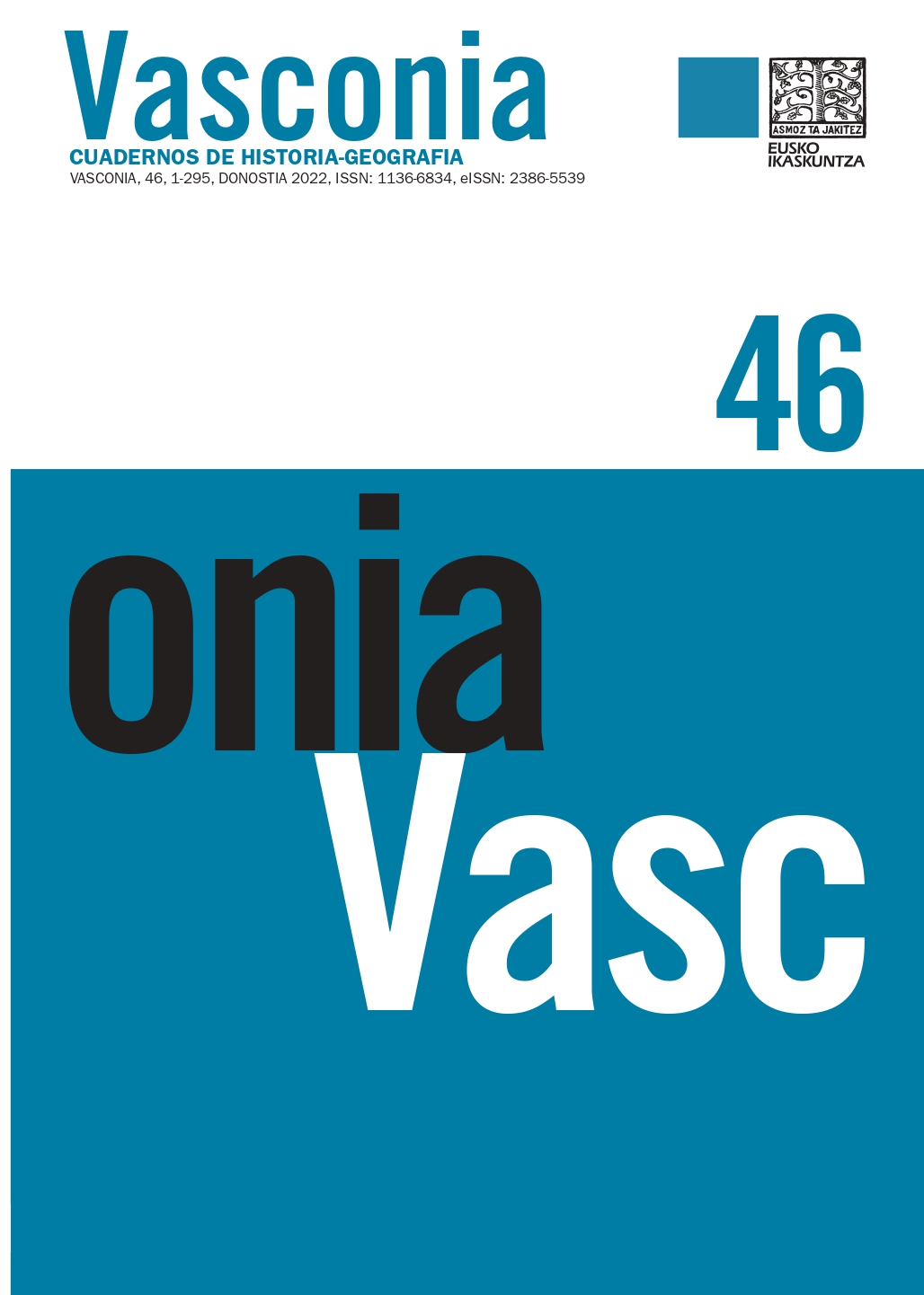Archivo Histórico de Protocolos de Madrid. Una fuente histórica para el estudio de las élites financieras y mercantiles vasco-navarras en la Corte
Resumen
En este artículo se analiza la utilidad que tienen los protocolos notariales como una fuentehistórica fundamental para el estudio de las redes de los grupos familiares de vascos y navarros que se instalaron en Madrid, tuvieron una importante presencia en la dirección de las grandes instituciones financieras y comerciales del país y conformaron una élite mercantil ilustrada al servicio de la monarquía española durante el siglo xviii y el primer tercio del siglo xix.Palabras clave: Cinco Gremios Mayores de Madrid; comerciantes; financieros; vascos; navarros; grupos familiares; escrituras notariales; Ilustración.Artikulu honen bitartez, Madrilen ezarri ziren euskaldun familien arteko sareak aztertzekoprotokolo notarialek daukaten garrantzia aztertu nahi da. Familia hauetako askok, finantza etamerkatal erakunde handietako zuzendaritzetan presentzia handia eduki zuten merkataritzaelite ilustratu bat osatuz eta espainiar monarkiaren zerbitzura lan eginez XVIII.mendean eta XIX. mendearen lehen herenean zehar.Hitz gakoak: Madrilgo Bost Gremio Nagusiak; merkatariak, finantzariak; euskaldunak; familiataldeak; notaritza idazkiak; Ilustrazioa. This paper analyzes the role of notarial protocols as a fundamental historical source for thestudy of the networks of Basque and Navarrese family groups stablished in Madrid, they had an important presence in the management of the large financial and commercial institutions of the country and formed an enlightened mercantile elite at the service of the Spanish monarchy during the 18th century and the first third of the 19th century.Keywords: Five Major Guilds of Madrid; merchants; financiers; Basques; Navarrese; familygroups; notarial documents; Enlightenment.Descargas
Publicado
2022-12-16
Número
Sección
Artículos

